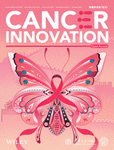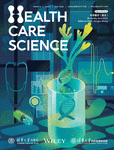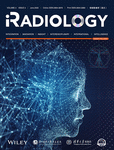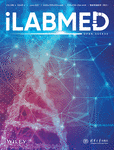Call for Papers
AI-Based Quantitative Medical Imaging in Cancer Evolution
Deadline for submissions: Monday, 30 June 2025
Tumor progression is driven by a process of clonal evolution, leading to cancer recurrence, metastasis, and drug resistance. Genome sequencing is an effective way to precisely characterize the cancer evolution. However, it suffers from high costs and invasiveness. Medical Imaging plays a vital role in cancer diagnosis and assessment, which reflects the tumor heterogeneity across a wide range of temporal and spatial scales and delivers massive information on cancer evolution. In recent years, many studies have focused on characterizing cancer evolution in a computational manner. For example, radiomics has been proposed to characterize tumor heterogeneity with a stepwise process, involving tumor segmentation, image preprocessing, feature extraction, model development, and validation. The integration of artificial intelligence (AI), particularly deep learning, into medical image analysis has revolutionized the field, leading to significant progress. With the recent rapid development of advanced techniques, such as CNN, RNN, and transformer, on the interdisciplinary between artificial intelligence and medicine, this special issue welcomes new perspectives, theories, algorithms, and applications of "AI-based Quantitative Medical Imaging in Cancer Evolution" on the central issues of quantitative image biomarker discovery, multimodal integration and clinical outcome prediction (cancer subtyping, prognosis prediction, drug response prediction, and molecular status prediction). The medical images include but are not limited to radiology (X-ray, CT, MRI), pathology (whole slide images), ultrasonography, PET, and endoscopy.
Topics of interest for this call for papers include but are not restricted to:
- Computational analysis for cancer evolution using radiomics and AI integration for quantitative medical imaging;
- Deep learning techniques in medical image analysis for cancer evolution studies and clinical applications. The medical images include but are not limited to radiology (X-ray, CT, MRI), pathology (whole slide images), ultrasonography, PET, and endoscopy;
- Biomarker discovery and clinical outcome prediction in cancer subtyping, prognosis, drug response, and molecular status using AI-based quantitative medical imaging.
Guest Editors:
Dr. Zaiyi Liu
Department of Radiology,
Guangdong Provincial People's Hospital,
China
Dr. Wenzhao Zhong
Guangdong Lung Cancer Institute,
Guangdong Provincial People's Hospital,
China
Dr. Chu Han
Guangdong Provincial Key Laboratory of Artificial Intelligence in Medical Image Analysis,
Guangdong Provincial People's Hospital,
China
Keywords: Radiology, Digital Pathology, Ultrasonography, Positron emission tomography, Endoscopy, Deep learning, Cancer, Quantitative Biomarker.
Submission Guidelines/Instructions:
Please refer to the Author Guidelines to prepare your manuscript. When submitting your manuscript, please answer the question "Is this submission for a special issue?" by selecting the special issue title from the drop-down list.









